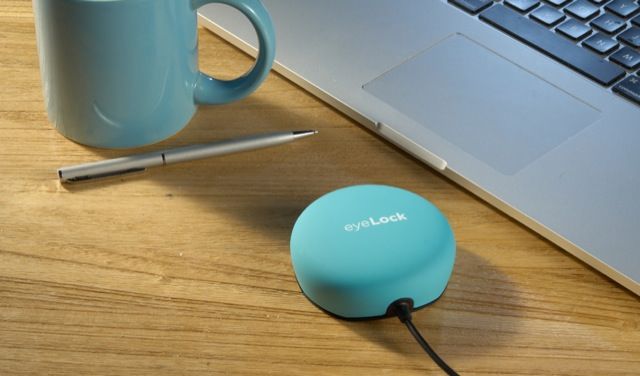Today in Tech News Digest, desktops are declared dead, Gmail stalkers get given a gift thanks to Google+, Overstock starts accepting Bitcoin, scanning your irises to protect your identity becomes a thing, Snapchat apologizes, Amazon starts selling hardware from a vending machine, and two companies fight over the right to pin.
Tablets Are Killing PCs
http://twitter.com/jwetzel/status/421456513492742144
The PC market is continuing to slowly die, with a seventh consecutive quarter of declining worldwide shipments. According to Gartner (via The Next Web), there were 82.6 million PCs shipped in the fourth quarter of 2013, a 6.9 decrease on the same quarter a year earlier.
In total during 2013 there was 315.9 million PCs shipped, a 10 percent drop from 2012, and the "worst decline in PC market history." In terms of individual companies only Lenovo and Dell saw increases in shipments from 2012 to 2013, with every other company on the slide.
The blame for this dwindling interest in PCs is being placed firmly on the shoulders of tablets, as consumers are increasingly sticking with the main computer they already own and are instead buying a secondary device on which to consume content. And this trend looks set to continue for the foreseeable future; probably until everyone and their grandmother owns a tablet.
Gmail Gains Google+ Stalking Tool
A new feature has been added to Gmail which means you'll be able to email anyone you know on Google+ (and vice versa) whether or not you know their email address. There is an option to disable or limit this feature, but you're opted in by default. Which means strangers will be able to email you until you prevent them from doing so.
If the reaction to the Google+ integration into YouTube at the end of last year is anything to go by, this won't go down well with ordinary users. It makes a lot of practical sense, but the privacy concerns are justified. And why, Google, with all the knowledge you possess of people's sense of fair play, would you make this opt-out rather than opt-in?
Overstock Accepts Bitcoin
http://twitter.com/overstock/status/421358995858022400
Online retailer Overstock is now accepting Bitcoin, becoming the first mainstream website to do so. Bitcoin payments on the site are being managed by Coinbase, described as a "kind of PayPal for Bitcoin." This move in another step towards the most famous cryptocurrency becoming a true currency used for buying and selling rather than the investment opportunity it's currently viewed as being.
Myris Scans Your Iris For Security
Those people who are deeply concerned about having their identity stolen can now go as far as requiring their iris to be scanned before they access secure accounts. This is thanks to Myris by EyeLock, a device announced at CES 2014 which uses biometric identification to keep you safe from fraud. An extreme solution, perhaps, but one that could become more popular as hackers improve their murky methods.
Snapchat Finally Apologizes
http://twitter.com/lhockenson/status/421344050613329920
Snapchat has finally apologized for the leaking of millions of users' phone numbers, saying sorry while announcing an update for iOS and Android designed to deal with the issue. The apology isn't exactly a grovelling one, with "attempts to abuse our API" given as the reason for the leak. The update allows "Snapchatters to opt-out of linking their phone number with their username," and we would advise everybody to do just that.
Amazon Installs Kindle Kiosk
http://twitter.com/dannysullivan/status/421388977795375104
Amazon is experimenting with selling hardware through vending machines, with a so-called 'Kindle Kiosk' having been spotted at the McCarran International Airport in Las Vegas. The setting was no accident, with departing CES 2014 attendees likely to walk past it. Which is exactly what GeekWire did. Whether this is a promotional effort or the start of a wider rollout remains to be seen.
Pinterest Vs. Pintrips
And finally, Pinterest and Pintrips are involved in a fight over the right to use the term 'pin'. Pinterest filed a trademark infringement lawsuit against Pintrips in 2013, and Pintrips is now fighting back by claiming 'pin' is too generic for Pinterest to claim ownership of it. This is the (only) interesting part of a rather complex legal battle between the two companies.
If you think this is bizarre then just remember that Facebook claims to own the exclusive right to use the word 'book' when it's accompanied by another word, any word, whether it happens to be 'face' or not. So, Pinterest is merely following in the footsteps of Mark Zuckerberg, the true innovator of dubious claims over intellectual property rights.
Tech News Digest… Breaking News Into Bite-Sized Chunks
Image Credits: Christopher Sessums, Niklas Bildhauer



